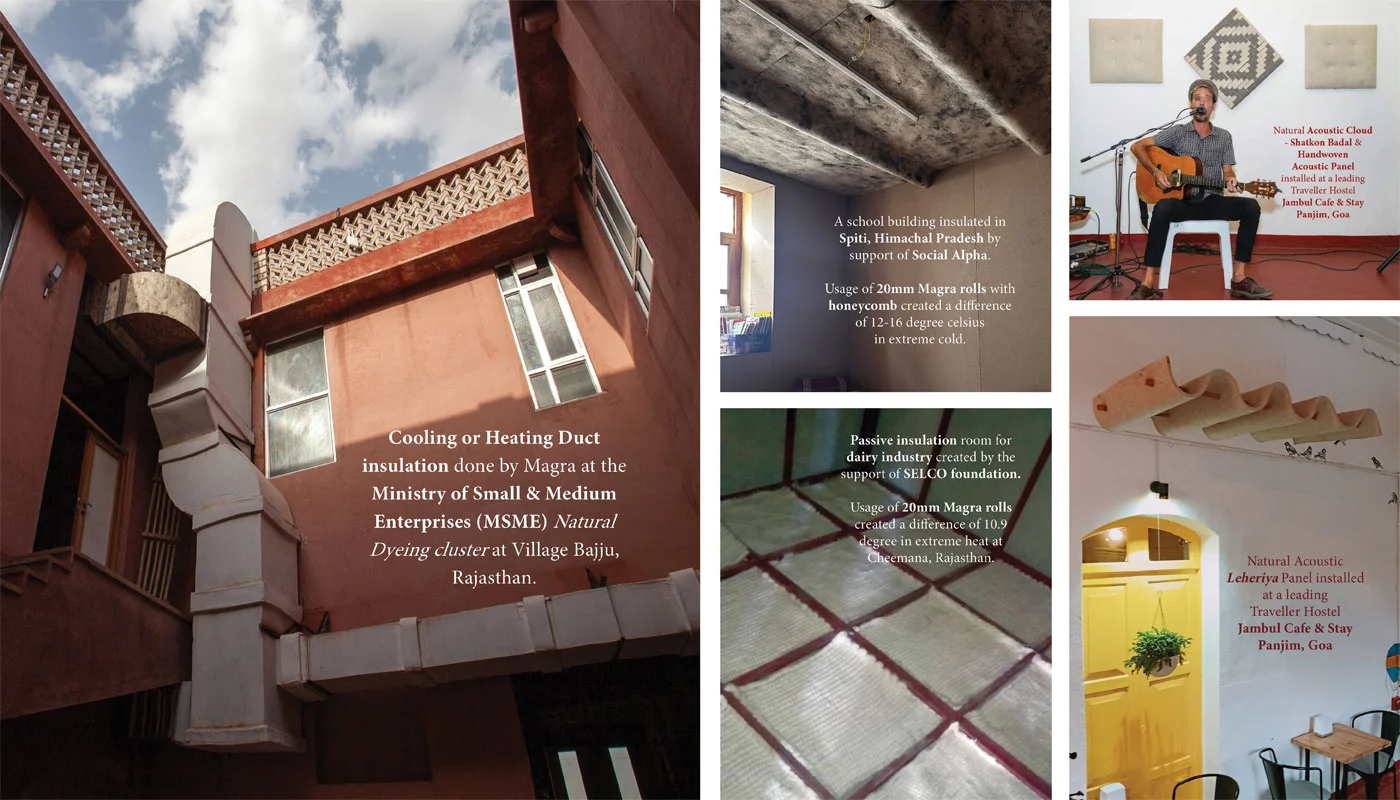Blog
The Future is Natural Pastoral Fiber

Why Magra Wool?
This isn’t just insulation. It’s climate-resilient architecture, born in one of the harshest ecosystems on earth — the Thar Desert. Sourced from local shepherd communities and processed without toxins, Magra Wool is a carbon-conscious, breathable, and circular insulation material that works with buildings, not against them.
Ancient Material, Future-Ready
Sheep’s wool has been used in traditional Indian homes for generations. What makes Magra Wool future-facing is its proven ability to regulate indoor climate while supporting environmental and social sustainability.
- Moisture-breathing and mold-resistant
- Naturally fire retardant
- High R-value thermal performance
- Acoustic dampening for calm interiors
- 100% biodegradable at end-of-life
From stone homes in Ladakh to sandstorm-battled mudhouses in Jaisalmer, wool-based insulation is nothing new. But never before has it been scaled for architects, eco-developers, and green building projects with such performance metrics.
Case for Carbon-Positive Construction
Hempcrete is praised for carbon sequestration — but so is sheep wool, with significantly lower processing emissions. Magra Wool requires no deforestation, no synthetic inputs, and is produced in decentralized, low-energy rural units.
Instead of clearing land for monoculture hemp, Magra Wool works with existing pastoral routes, preserving native biodiversity.
- Supports dryland agro-pastoralism
- Creates dignified rural livelihoods
- Requires minimal water
- No agrochemicals
Every roll of Magra insulation supports regenerative grazing — where sheep improve soil quality, carbon storage, and grassland health. That’s not just low-carbon — that’s climate healing.
Building Projects That Breathe
From off-grid cottages in Spiti to sound-insulated studios in Delhi, Magra Wool is being quietly adopted in:
- Eco resorts
- Passive homes
- Natural building experiments
- Community health centers and schools
Because Magra Wool is vapor-permeable, it prevents condensation, improves indoor air quality, and doesn’t trap moisture behind synthetic barriers — unlike standard foams and fibers.
And it doesn’t need to be hidden. Its aesthetic texture can be left visible or layered under lime plasters for a breathable wall finish.
From the Desert to Tomorrow’s Cities
Magra Wool is India’s quiet revolution in sustainable insulation.
It aligns with the needs of the future:
- Circular economy
- Indigenous knowledge systems
- Zero-waste material cycles
- Affordable natural homes
Whether in new constructions or retrofits, Magra isn’t just another product — it’s a values-led material for those building a better world.
Let’s Grow Buildings, Not Just Build Them
If you’re an architect, green builder, or sustainability consultant, now’s the time to shift from extractive to regenerative materials.
Partner with Samakhya. Use Magra Wool.
info@samakhya.com
www.samakhya.com
The future of building is local, circular, and living. Let Samakhya lead the way.
